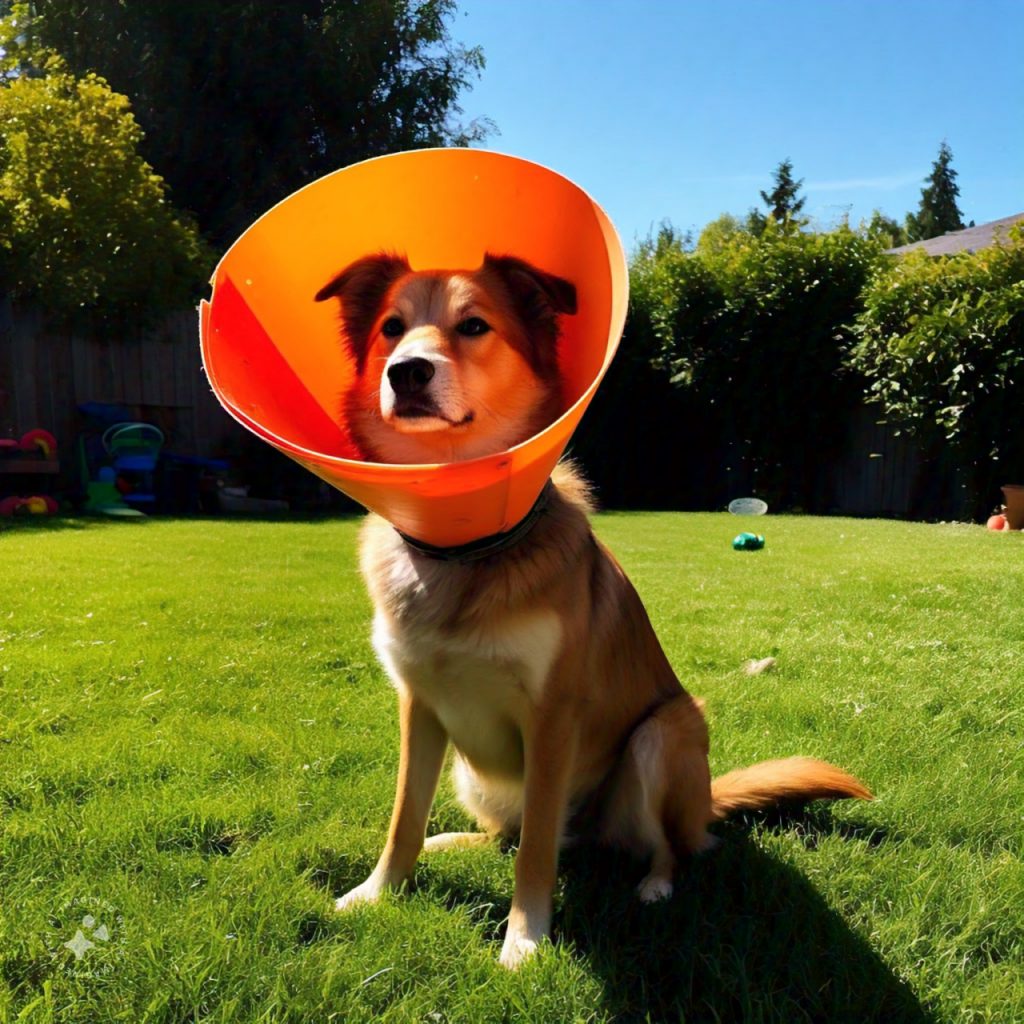When it comes to caring for a dog recovering from surgery, injury, or a medical procedure, recovery cones and collars play a critical role. These tools, often dubbed “the cone of shame,” are essential for preventing dogs from licking, biting, or scratching wounds, stitches, or irritated areas, allowing them to heal properly.
In this comprehensive guide, we’ll dive deep into everything pet owners need to know about recovery cones and collars, including their purpose, types, how to choose the right one, alternatives, and tips for ensuring your dog’s comfort.
Why Are Recovery Cones and Collars Necessary?
Dogs instinctively lick and chew at injuries or itchy areas. While this behavior may seem harmless, it can lead to:
- Infections: Introducing bacteria to a healing wound.
- Delayed Healing: Continuous irritation or reopening of surgical incisions.
- Injury Aggravation: Causing additional damage to the affected area.
Recovery cones and collars act as physical barriers to deter dogs from accessing their wounds, promoting quicker and safer healing.
Types of Recovery Cones and Collars
Not all recovery collars are created equal. Depending on your dog’s size, temperament, and specific recovery needs, there are several types to consider:
1. Traditional Plastic Cones
- Description: These are the classic, rigid cones most commonly associated with post-surgery care.
- Pros:
- Highly effective in restricting access.
- Durable and easy to clean.
- Cons:
- Can be uncomfortable for some dogs.
- May restrict peripheral vision and movement.
2. Soft Fabric Cones
- Description: Made from padded or flexible materials like nylon or cotton.
- Pros:
- More comfortable than plastic cones.
- Lightweight and less intimidating for dogs.
- Cons:
- May not be as durable for determined chewers.
3. Inflatable Recovery Collars
- Description: Resemble a neck pillow, with an air-filled design that prevents access to wounds.
- Pros:
- Comfortable and less restrictive.
- Provides good mobility and visibility.
- Cons:
- May not work for areas like paws or tails.
4. Surgical Recovery Suits
- Description: Full-body garments that cover wounds instead of using a collar.
- Pros:
- Great for dogs who dislike collars.
- Provides comprehensive coverage.
- Cons:
- May not be suitable for all wound types.
How to Choose the Right Cone or Collar for Your Dog
Selecting the best option depends on several factors:
1. Size and Fit
- Ensure the cone or collar fits snugly around your dog’s neck without being too tight.
- The cone’s length should extend slightly beyond your dog’s nose to prevent access to wounds.
2. Behavioral Considerations
- For calm dogs, softer options like inflatable collars may suffice.
- For determined chewers or active dogs, traditional plastic cones are often more effective.
3. Type of Wound or Recovery Area
- For upper body wounds (like the chest or back), most cones work well.
- For tail or paw injuries, choose a cone that provides adequate restriction.
4. Durability and Maintenance
- Rigid cones are easier to clean and more durable.
- Fabric options may require more frequent washing.
Alternatives to Traditional Recovery Collars
If your dog struggles with traditional cones, consider these alternatives:
- DIY Recovery Cones: Use materials like foam or cardboard to create a custom collar.
- Specialized Bandages: For minor injuries, vet-approved bandages can deter licking.
- Behavioral Training: Use commands and distractions to reduce licking behavior.
Tips for Helping Your Dog Adjust to a Recovery Cone
Introducing a recovery cone can be challenging. Here are some tips to ease the transition:
1. Positive Reinforcement
- Reward your dog with treats and praise when they tolerate the cone.
- Gradually introduce the cone before it’s needed to reduce fear or anxiety.
2. Monitor Their Behavior
- Watch for signs of distress or difficulty eating, drinking, or sleeping.
- Adjust the cone or switch to a different type if needed.
3. Ensure Accessibility
- Make sure your dog can comfortably access food and water. Elevated bowls can help.
4. Provide Entertainment
- Keep your dog distracted with toys or interactive games to prevent frustration.
Frequently Asked Questions
1. How long should my dog wear the recovery cone?
Typically, dogs should wear the cone until the wound is fully healed or stitches are removed. Your vet will provide specific guidance.
2. Can my dog sleep with a cone on?
Yes, dogs can sleep with a cone. However, ensure the cone is properly fitted and not causing discomfort.
3. What if my dog refuses to wear the cone?
Consider alternatives like soft or inflatable collars, or consult your vet for additional solutions.
Final Thoughts
Recovery cones and collars are invaluable tools for ensuring your dog’s health and safety during recovery. By understanding the various options and how to use them effectively, you can provide the best care for your furry friend.
Remember to consult your veterinarian for personalized advice and to monitor your dog’s recovery closely. With the right approach, you can help your pet heal quickly and comfortably.
This detailed guide not only answers key questions but also ensures you’re equipped with the knowledge to make informed decisions about your pet’s recovery.

